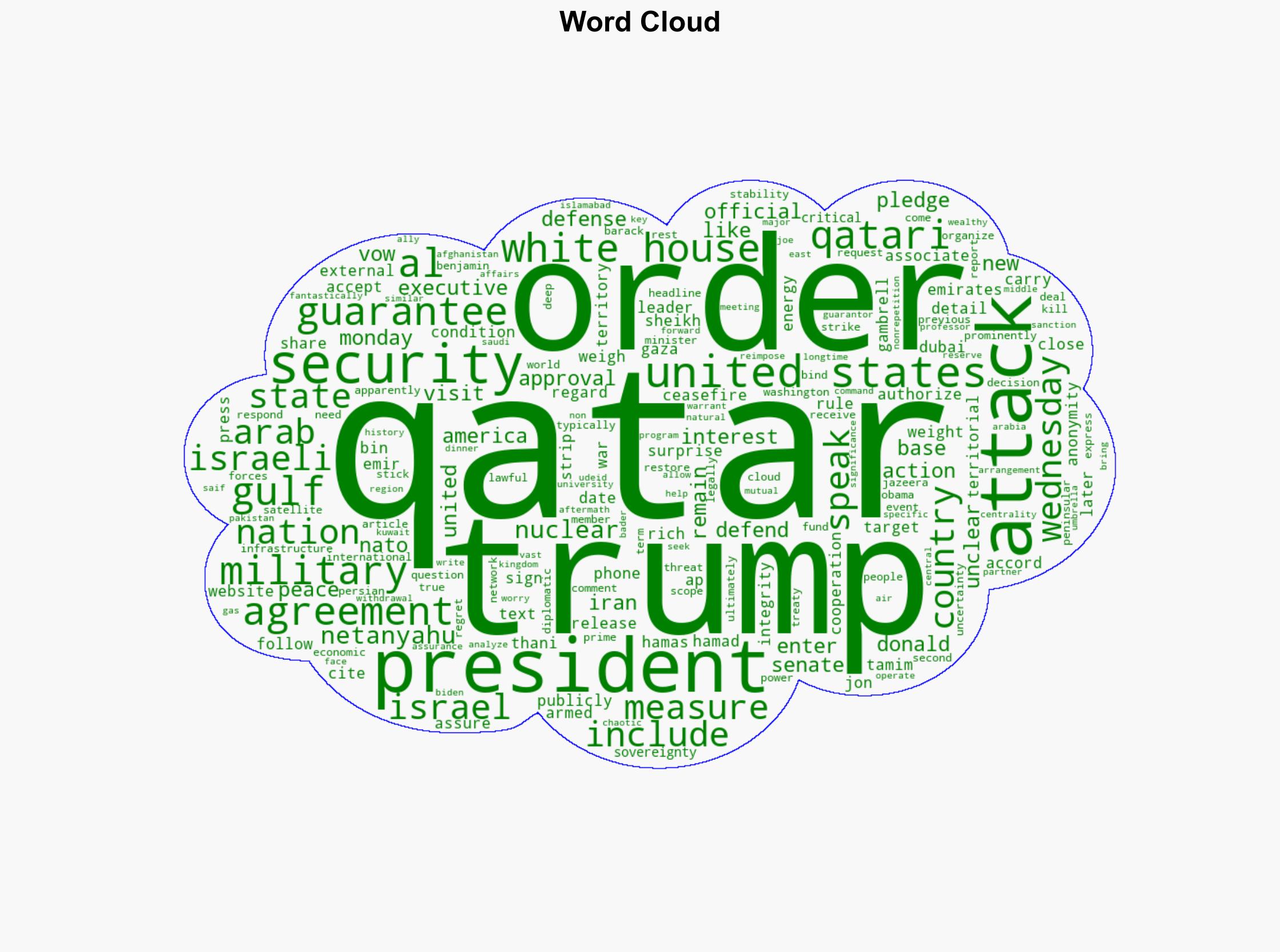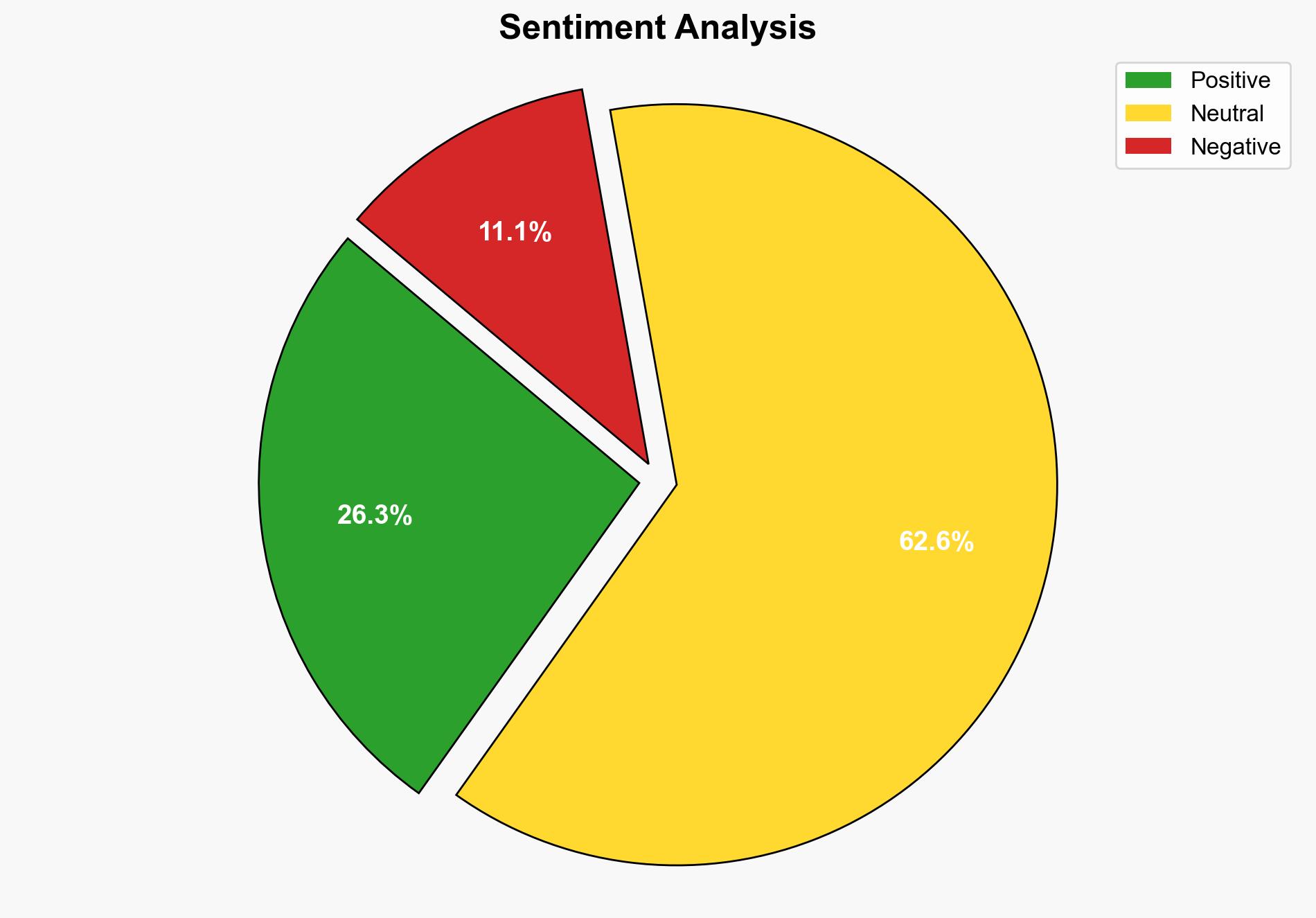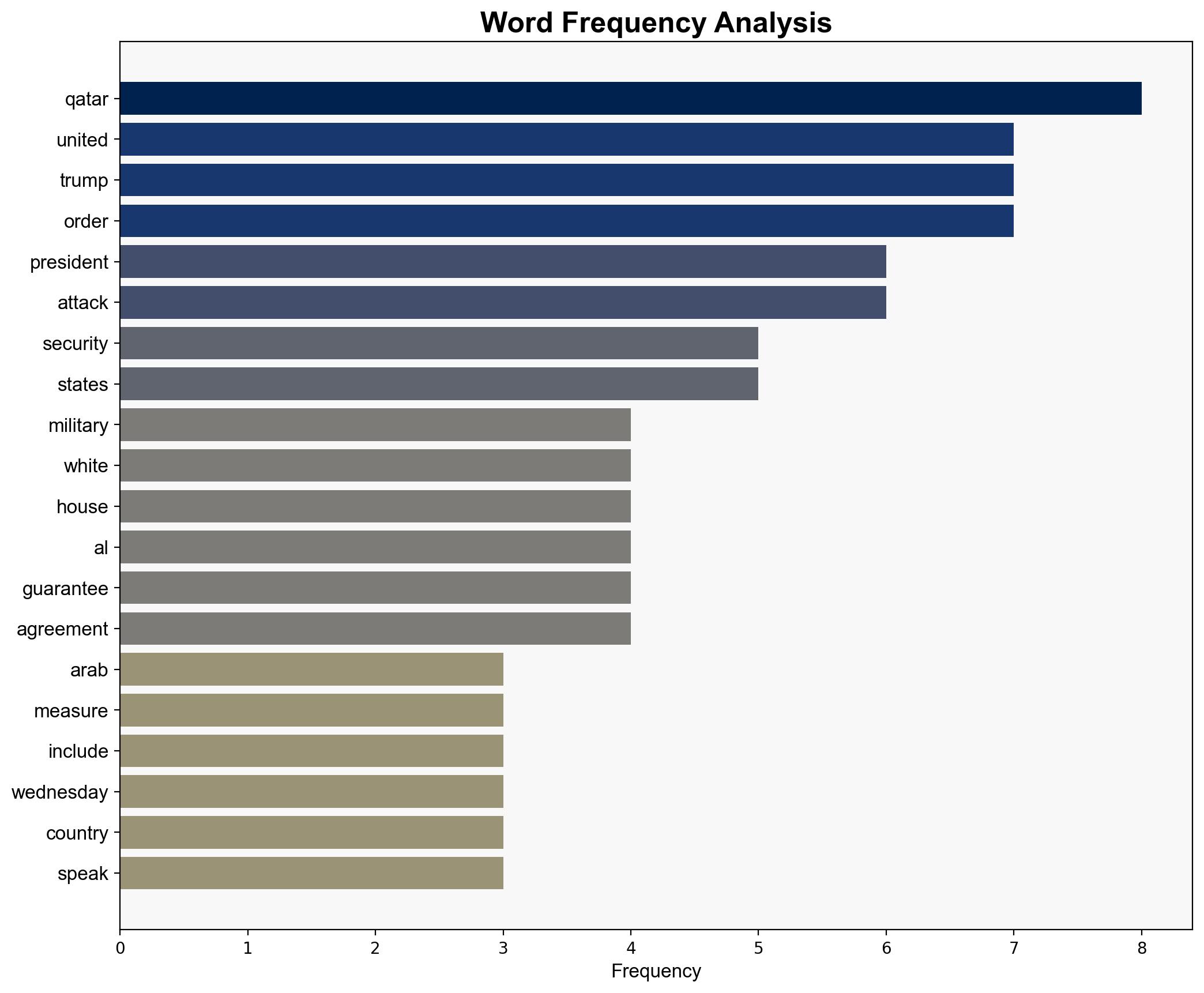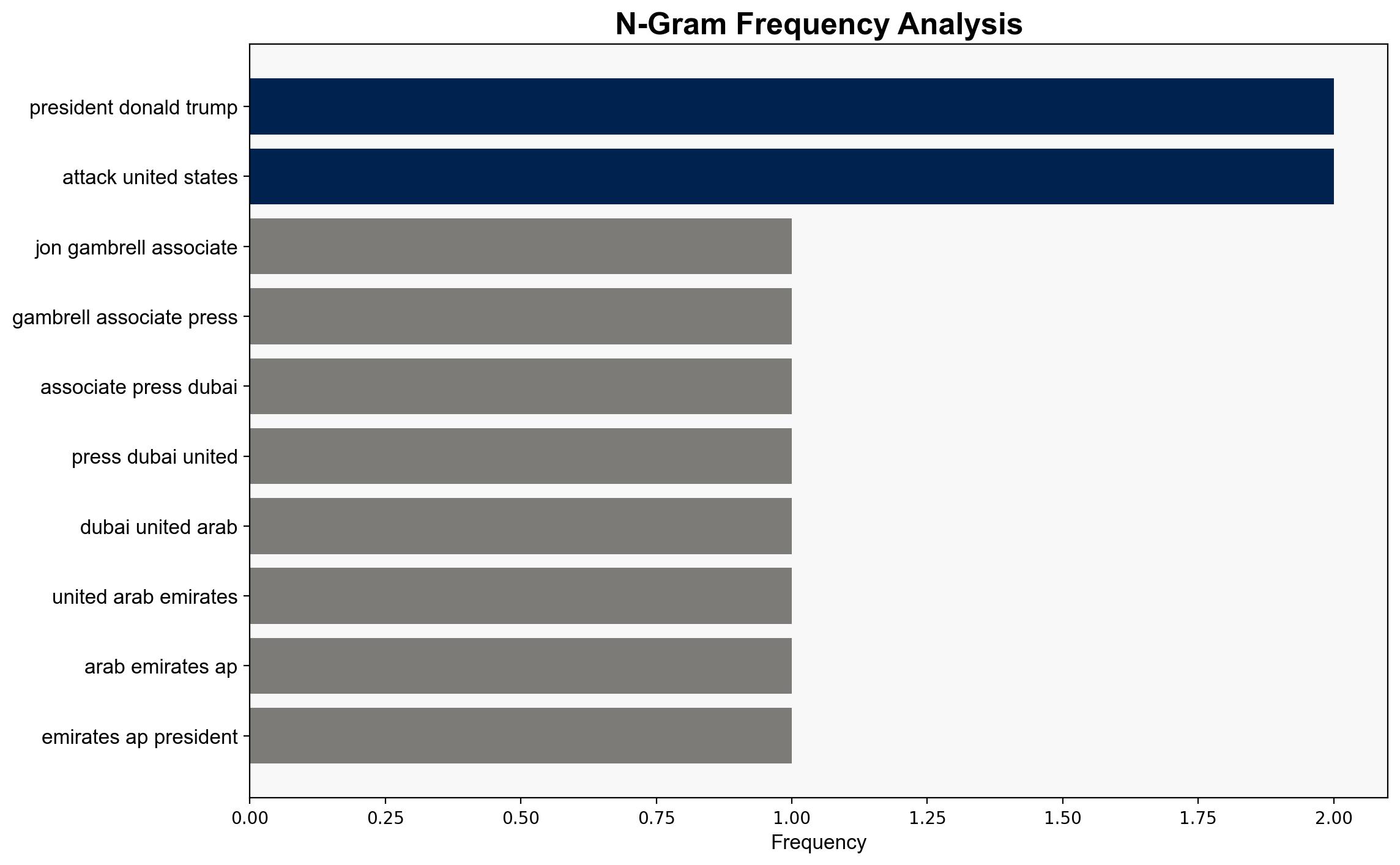Trump signs an executive order vowing to defend Qatar in the wake of Israels strike – Boston Herald
Published on: 2025-10-01
Intelligence Report: Trump signs an executive order vowing to defend Qatar in the wake of Israel’s strike – Boston Herald
1. BLUF (Bottom Line Up Front)
The strategic judgment indicates a medium confidence level in the hypothesis that the executive order is primarily a diplomatic maneuver rather than a commitment to military action. The recommended action is to closely monitor U.S.-Qatar relations and regional responses, particularly from Israel and neighboring Gulf states, to assess shifts in alliances and security dynamics.
2. Competing Hypotheses
Hypothesis 1: The executive order is a symbolic gesture aimed at reassuring Qatar and maintaining U.S. influence in the Gulf, with limited intention of military engagement. This hypothesis is supported by the lack of Senate approval, which is typically required for binding defense agreements, and the historical context of similar non-binding assurances.
Hypothesis 2: The executive order signals a genuine commitment to military defense of Qatar, potentially as a strategic counterbalance to Iran and to secure U.S. interests in the region. This is supported by the strategic importance of Qatar’s natural resources and military bases, as well as recent regional tensions.
3. Key Assumptions and Red Flags
– Assumption: The U.S. intends to maintain its role as a primary security guarantor in the Gulf region.
– Red Flag: The lack of clarity and legal binding nature of the executive order raises questions about its enforceability.
– Potential Bias: Over-reliance on historical U.S. diplomatic patterns may obscure shifts in current geopolitical strategies.
– Missing Data: Detailed terms of the executive order and the specific conditions under which military action would be considered.
4. Implications and Strategic Risks
– The executive order could exacerbate regional tensions, particularly if perceived as a direct challenge to Iran or as favoritism towards Qatar.
– Economic implications include potential impacts on global energy markets if regional instability affects oil and gas exports.
– Geopolitical risks involve the possibility of strained U.S.-Israel relations if the order is seen as undermining Israeli security measures.
– Psychological impact on regional actors who may perceive the U.S. as unpredictable or inconsistent in its commitments.
5. Recommendations and Outlook
- Monitor diplomatic communications between the U.S., Qatar, and Israel for indications of policy shifts or escalations.
- Engage in dialogue with regional allies to clarify U.S. intentions and mitigate misunderstandings.
- Scenario Projections:
- Best Case: The order strengthens U.S.-Qatar relations without provoking regional instability.
- Worst Case: Misinterpretation leads to military escalation involving multiple regional actors.
- Most Likely: The order serves as a diplomatic tool with limited immediate impact on military dynamics.
6. Key Individuals and Entities
– Donald Trump
– Sheikh Tamim bin Hamad Al Thani
– Benjamin Netanyahu
7. Thematic Tags
national security threats, cybersecurity, counter-terrorism, regional focus





